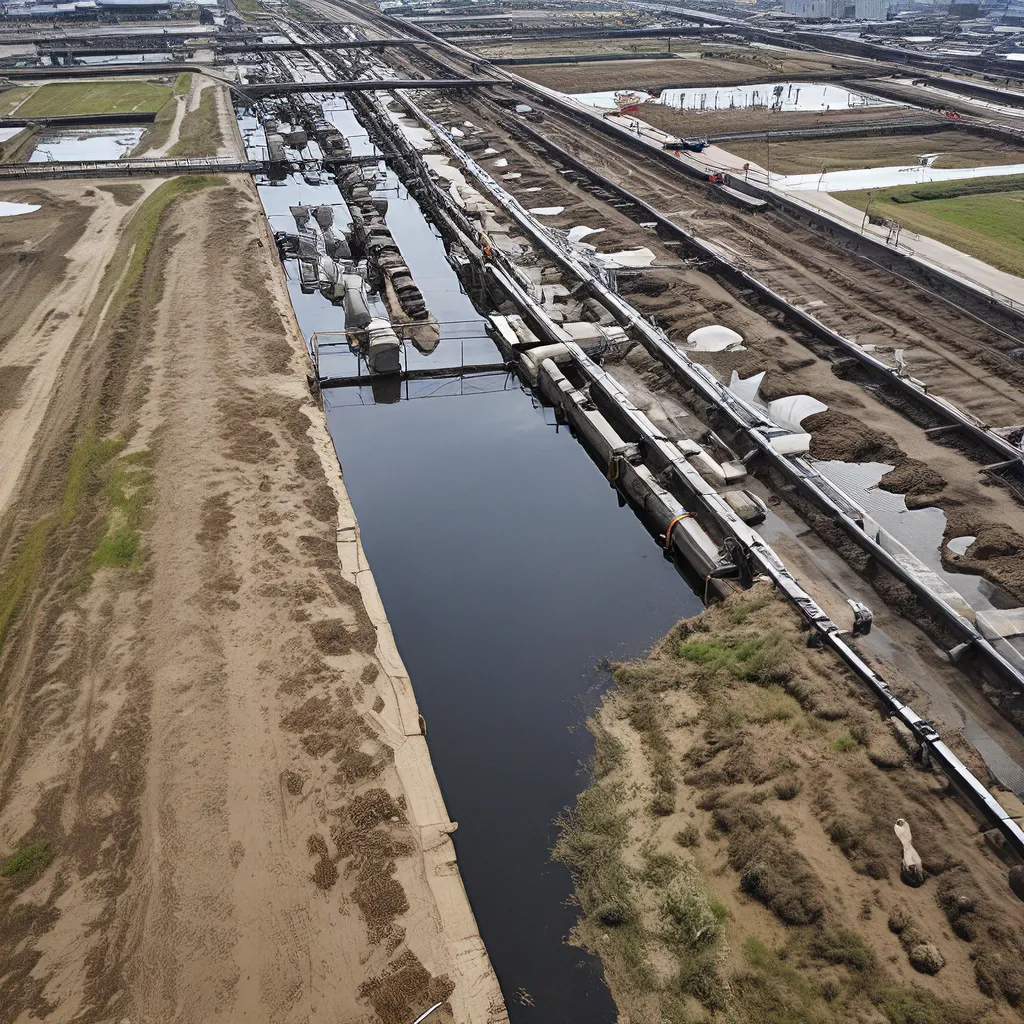
Bracing for the Deluge: Rethinking Wastewater Systems in a Changing Climate
As the earth’s temperature rises and extreme weather events become more frequent, our wastewater infrastructure is facing unprecedented challenges. I’ve spent the past few weeks diving deep into the latest research and expert insights to understand how we can future-proof our sewers, treatment plants, and drainage systems. And let me tell you, it’s not a simple task – but it’s one that’s absolutely critical for the health of our communities and the environment.
You see, our traditional wastewater systems were designed based on historical precipitation patterns and seasonal flows. But as the climate shifts, those patterns are becoming increasingly unpredictable. One study found that by 2050, up to 20% of wastewater treatment plants in the United States could be at risk of failure due to climate-related impacts. That’s a sobering statistic, and it’s just the tip of the iceberg.
Flooding Frenzy: Navigating Extreme Precipitation Events
One of the biggest challenges is the sheer volume of water that these systems now need to handle. We’re seeing more frequent and intense rainfall events that can overwhelm aging infrastructure. In fact, some estimates suggest that sewer overflow events could increase by as much as 120% in the coming decades. That not only poses a risk to public health, but can also lead to the release of untreated sewage into our waterways, causing environmental damage.
To combat this, many municipalities are exploring green infrastructure solutions, like permeable pavement and rain gardens, to help absorb excess stormwater. But that’s just one piece of the puzzle. We also need to think creatively about how to upgrade and expand our traditional wastewater treatment facilities to handle these increased flows. This might involve investing in larger tanks, beefing up pumping systems, or even exploring modular, decentralized approaches.
Drought Dilemmas: Managing Water Scarcity
Of course, it’s not all about too much water. In some regions, climate change is also leading to prolonged droughts, which can have their own set of challenges for wastewater management. As water becomes scarcer, the concentration of contaminants in wastewater can increase, making it more difficult and costly to treat. And with less water flowing through the system, there’s a higher risk of pipes clogging and equipment malfunctioning.
One potential solution is to explore water reuse and recycling. By treating wastewater to a high standard and then repurposing it for non-potable uses like irrigation or industrial processes, we can reduce the strain on our freshwater supplies. Of course, this requires significant investment in advanced treatment technologies and distribution infrastructure, but the long-term benefits to both the environment and our water security could be immense.
Embracing Innovation: Emerging Technologies and Adaptive Strategies
As I’ve been digging into this topic, I’ve been heartened to see the incredible ingenuity and creativity that’s going into adapting our wastewater systems for a changing climate. From sensor-driven monitoring systems that can identify issues in real-time, to next-gen treatment processes that can handle a wider range of contaminants, the future of wastewater management is looking increasingly high-tech.
And it’s not just about the hardware – there’s also a growing focus on the “soft” side of things, like developing more flexible, adaptive governance structures and decision-making frameworks. This could involve things like scenario planning, risk assessment, and collaborative stakeholder engagement to ensure that communities are prepared for the challenges ahead.
Ultimately, I believe that the key to thriving in this new climate reality is a willingness to think outside the box and embrace a spirit of continuous innovation. Whether it’s exploring nature-based solutions, harnessing the power of data and automation, or fostering interdisciplinary collaboration, the wastewater professionals of the future will need to be nimble, creative, and unafraid to challenge the status quo.
So, if you’re interested in being on the front lines of this critical issue, I’d encourage you to check out the services offered by Alpha Wastewater. Their team of experts is constantly researching and implementing the latest techniques and technologies to help communities like ours adapt to the changing climate. It’s an exciting time to be in this field, and I for one can’t wait to see what the future holds.